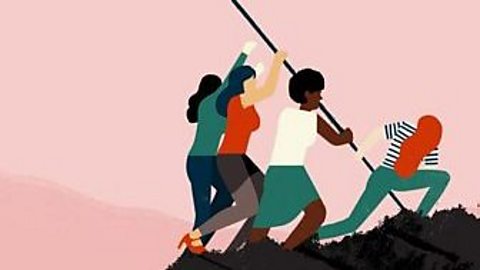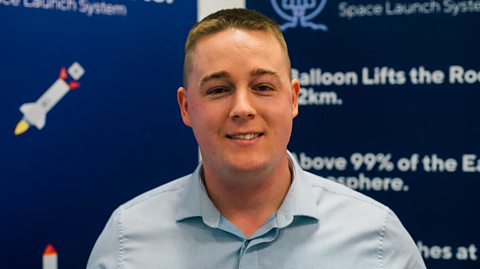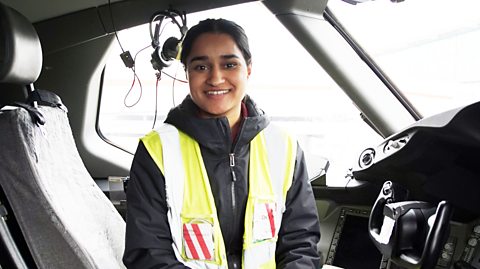When Dr Helen Sharman blasted off on a Soyuz rocket to the Mir space station on May 18 1991 she made history, becoming the first British person to travel into space. Now, 30 years since she last felt that floating feeling of being in space, Helen sat down to talk to us about the future of space travel and how someone in school right now could be the first person to step foot on Mars. Watch her interview below.
Helen Sharman: Hello. I'm Helen Sherman, I'm the first British astronaut. I flew into space for eight days in nineteen ninety one, and since then, I've really enjoyed communicating science. I work now at Imperial College London in the outreach team, encouraging young people to continue their studies in STEM subjects.
I didn't actually apply to go into space because I wanted to be the first from this country, I applied 'cos honestly, I thought it would be just fun and the chance to do so many different things, to have such a varied job, because I've always loved sport and I've loved learning languages and sciences, and so it's difficult to know what to choose. To have a job that incorporated all of those was just something I couldn't resist. But being the first person from the country made me feel as though I should really make my spaceflight very useful and I've actually really enjoyed, since my spaceflight, talking, not just about space, but bringing science to life, 'cos, you know, I think everybody's interested in space…I know I am, but then I'm biased, of course, but I think we can find out so much about space and realise, I suppose, how much of everyday life there is involved, not just in what we do in space, but how much science we need to think about just in order to stay alive onboard a space station.
I have so many memories of being in space, but I think, probably, if I had to choose one, it would probably be that floaty kind of feeling, you know, feeling weightless. Particularly when I got to the space station, I spent two days on board my soya spacecraft, fairly cramped, three of us on there, no hot water, very, very basic toilet. It was quite fine, it was survivable, but very, very basic and when we got to the space station. I opened the hatch in front of me, floated into this huge space station and met two people who'd been up there for six months, just the two of them, for six months and get this - the only communication they had with Earth was by the radio and that was only for about thirty minutes every orbit, because the other sixty minutes of every orbit they were round the other side of the world to Mission Control. They could only speak when their radio could see, if you like, and it had a direct line of contact from the space station to Mission Control. Nowadays, of course, the International Space Station uses satellites to bounce all of its messages around the world and back to Mission Control, back up to them in space, and they have satellite phones they can use as well to phone home if they want to. So, yes, it was a great time to be on board the space station and hugging those two people and that floating through these great big, long modules with some wonderful windows to look out of.
STEM, well what do we mean by STEM? It's Science, Technology, Engineering and Maths. Sometimes we have two M's, don't we? The other M can be a medicine as well. They're just fabulous subjects, for me, not just because they're interesting, but actually, because they open up so much opportunity in life. I never thought ever, ever, ever thought I would be an astronaut. It wasn't going to be possible when I was growing up, things like that didn't happen to British people. We didn't have astronauts then. But things change. We don't know all those amazing opportunities that are going to be around in the future. But what we do know is that a lot of them, probably most of them, will need to have some sort of STEM education they'll needed to know your STEM subjects. So if you do STEM, then you're opening up a whole lifetime of opportunity. And who knows, some of that opportunity may well be going into space. We really do think that those first few people who are going to walk on the surface of Mars are now at school, you are absolutely the right age to that kind of thing, but apart from that, not just being in space, but all of those amazing jobs that you could have in the space industry. You know, we think we're going to need seventy thousand more people who are STEM educated working in UK space industry in the next decade. Huge investment from the government. So there's going to be an awful lot of openings and opportunities for people in STEM as well as other subjects. So, for instance, you might want to be a lawyer, we'll need lawyers, we need project managers, but we need an awful lot of people with STEM education. So it's a great thing to do and a great way to understand about the world and also I think, to be quite honest for me, it's also about solving some of the world's really big problems. Some people may not want to go into space, but we all need a climate that we can live in. We all need to be able to have a bit of a social life with without having to live through a pandemic. So these things are really big issues that affect the whole world that STEM subjects help us to solve.
In the UK, there's a possibility, now, of being an astronaut. We have Tim Peake already who is a British ESA astronaut, European Space Agency, ESA astronaut and the European Space Agency has already just asked for its next selection. So already people are starting to think about applying to the UK Space Agency and any member country can apply for that, including the United Kingdom. There will be other openings in the future and there will also also be openings, I think, not just through the European Space Agency, but I can see people who go into space to do work for their companies, I could see people who go into space to perhaps work for other space agencies as well, perhaps the UK Space Agency will collaborate with NASA or with the Japanese Space Agency or others. So, so many opportunities and it's just such an exciting time, I think, to be alive.
In the UK there is now a possibility of being an astronaut… it's such an exciting time to be alive. – Helen Sharman

The women leading the charge in STEM careers
Experiences of different women working in STEM and how to follow in their footsteps.

Ben: aerospace engineer
Ben's the co-founder of a company called StratoBooster. They test space launch systems.

Balwant: aircraft engineer
Balwant is an aircraft engineer for British Airways.
